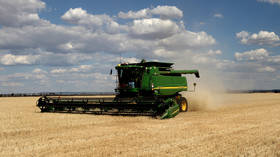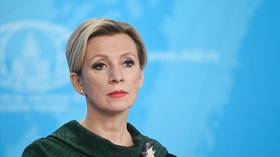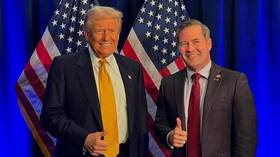Australia vows to drag China to WTO over barley tariffs amid mounting trade tensions between the two nations

Canberra may file a formal complaint to the World Trade Organization (WTO) over Beijing’s anti-dumping duties on barley, Australia’s trade minister said as a tariff dispute between the two powers escalates.
“I expect that will be the outcome,” Trade Minister Simon Birmingham said in an interview with broadcaster ABC on Sunday when asked whether a WTO case over barley is possible. “We are working through exactly when and making sure we have the evidence lined up.”
Also on rt.com Beijing slaps up to 212% tariffs on Australian wine in response to price-dumpingChina, which is the largest export market for Australian barley, imposed over 80 percent in duties on the product in May over findings that it was being dumped in China, hurting domestic producers. The sweeping tariffs were estimated to cost the Australian economy up to AU$500 (US$369) million per year.
The trade minister said that Australia has already voiced concerns over the “accumulation of instances from China of adverse trade decisions” at the meeting of the WTO's trading goods committee last week.
“We do see those as a very concerning development. We are calling them out through the WTO, while also still using all of those processes in the Chinese system to try to resolve them,” Birmingham noted.
Barley is not the only product caught in the simmering conflict between Canberra and Beijing. Beijing previously halted shipments of Australian coal, with imports worth AU$700 (US$516) million believed to be blocked from Chinese ports. China also banned some beef shipments from Australia and slapped duties of over 200 percent on Australian wines citing dumping as the reason. The move is set to hit Australian wine exporters hard with their biggest market at stake.
However, other curbs such as on wine will not be subject to a possible WTO case, yet anyway, Birmingham said. He called China’s move on wine an “interim application of tariffs” and said that it could be still worked through China’s domestic processes.
Tensions between the two nations have been escalating for the past three years, especially after Canberra banned China’s Huawei and ZTE from its 5G rollout. The situation worsened after Australia called for an international inquiry into the origins of the coronavirus outbreak.
Canberra hoped tensions with Beijing would ease after the two countries became part of one of the world’s biggest free trade zones. On November 15, ten ASEAN nations and five other Asia-Pacific countries signed a massive trade deal called the Regional Comprehensive Economic Partnership (RCEP). The accord covers some 2.2 billion people with a combined market size of $26.2 trillion or 30 percent of the world’s gross domestic product (GDP).
For more stories on economy & finance visit RT's business section













